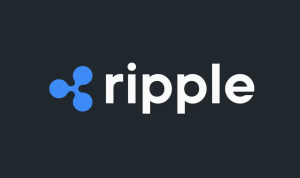
The Ripple network is a decentralized platform for global payments and currency exchange. It is based on blockchain technology, which allows for fast, secure, and transparent transactions. The Ripple network has been gaining significant attention from financial institutions and investors due to its potential to revolutionize the financial industry.
One of the main reasons why the Ripple network is the future of finance is its speed and scalability. Transactions on the Ripple network are processed within seconds, compared to the several minutes or even hours it takes for traditional payment systems to complete a transaction. This allows for real-time settlement of payments, which is essential for businesses and individuals who need to make urgent or large payments.
Another key advantage of the Ripple network is its low transaction fees. Unlike other cryptocurrencies, which have high fees due to their limited supply and increasing demand, the Ripple network has a fixed supply of 100 billion XRP tokens, which helps to keep transaction fees low. This makes it an attractive option for businesses and individuals who want to make global payments without incurring high fees.
The Ripple network also offers greater security and transparency compared to traditional payment systems. Blockchain technology ensures that all transactions on the network are recorded on a decentralized ledger, which cannot be altered or hacked. This makes the Ripple network less susceptible to fraud and hacking, which are common issues in the financial industry. The transparency of the network also allows for easier tracking and auditing of transactions, which can help to prevent money laundering and other financial crimes.
Another key advantage of the Ripple network is its ability to facilitate cross-border payments. The traditional payment systems used by banks and financial institutions often have high barriers to entry for smaller businesses and individuals who want to make international payments. The Ripple network allows for easy and affordable access to global markets, which can help to promote trade and economic growth.
The Ripple network also has the potential to disrupt the traditional banking system. Banks and financial institutions currently act as intermediaries for global payments, which can result in high fees and slow transaction times. The Ripple network allows for direct peer-to-peer payments, which can bypass the need for intermediaries and reduce the costs and delays associated with traditional payment systems. This can help to make financial services more accessible and affordable, particularly for individuals and businesses in developing countries.
In conclusion, the Ripple network offers significant advantages over traditional payment systems, including its speed, low transaction fees, security, transparency, and ability to facilitate cross-border payments. These features make the Ripple network a promising candidate to become the future of finance, as it has the potential to revolutionize the financial industry and make financial services more accessible and affordable.
